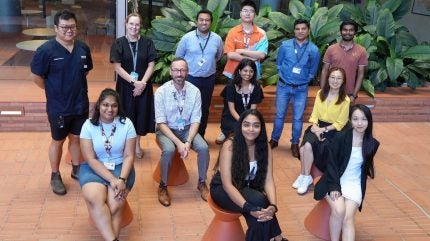
Scientists of Queensland University of Technology (QUT) based at the Translational Research Institute (TRI) in Australia have secured an A$4m ($2.65m) grant from the US Department of Defense (DoD) to develop new treatments for Parkinson’s disease.
Aimed at exploring the gut microbiome’s role in the disease, the funding will support a programme that could revolutionise treatment approaches.

Discover B2B Marketing That Performs
Combine business intelligence and editorial excellence to reach engaged professionals across 36 leading media platforms.
The scientists are assessing new therapeutics that target the gut microbiome and gut-brain axis.
The grant was awarded to associate professor Richard Gordon and his team from the QUT School of Biomedical Sciences. They received the funds through congressionally directed medical research programmes.
The investment will bolster the team’s ongoing research into Parkinson’s disease and facilitate the testing of new strategies to halt or reverse its progression.
The QUT team plans to identify new drug classes and develop engineered microbes as live biotherapeutics. These efforts aim to modify the gut ecosystem and trigger protective mechanisms against the disease.

US Tariffs are shifting - will you react or anticipate?
Don’t let policy changes catch you off guard. Stay proactive with real-time data and expert analysis.
By GlobalDataThe research will utilise TRI’s clinical research facility for subject recruitment and sample collection.
The gnotobiotic facility will carry out the microbiome work and biological research facilities will evaluate the newly developed therapeutics.
Subject recruitment for the microbiome study is set to begin in August 2024, enrolling individuals with Parkinson’s disease and healthy volunteers.
Participants will provide blood samples and use a take-home microbiome kit, which they can return by mail for analysis.
Gordon stated: “Rather than taking the usual approach of blocking immune pathways that drive inflammation, our research will explore the potential of restoring the gut microbial ecosystem and harnessing protective factors lost in the disease to limit inflammation and prevent vulnerable neurons from degeneration.
“If our approach is successful, it will open new avenues by which we can attempt to slow or stop Parkinson’s disease and improve the quality of life for millions living with this condition.”
The US DoD-funded initiative builds upon previous research supported by the Michael J Fox Foundation and the Shake It Up Australia Foundation on the NLRP3 inflammasome and the gut microbiome.




